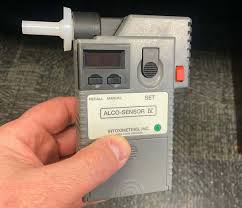In Wisconsin, adults who drive with a BAC (blood alcohol content) level of .08% or higher will be charged with an OWI. To measure a person's BAC level, police officers can use an Intoximeter to measure a person’s BAC through a breath sample. When administered properly, a breath test can yield accurate results. On the other hand, various factors could result in flawed intoximeter readings.
It's vital to know that breath test results are typically a crucial component of the prosecution's case. In some cases, challenging the result's accuracy and validity could spell the difference between losing and winning an OWI case. All intoximeters are susceptible to error, which could result from various factors that an experienced OWI attorney can use to challenge intoximeter test results.
Malfunctioning Intoximeter Machine
Breath tests are only valid if the instrument was functioning properly, maintained regularly, and calibrated correctly and in accordance with manufacturer instructions. For a breath test result to be admissible in court, the prosecution must show that the instrument used is compliant with state and DOT regulations.
Margin of Error
Even under the most controlled circumstances, all breath test instruments will have a margin of error. For example, some breathalyzers have a .01% margin of error, meaning that if the instrument measures your BAC level at .08%, there's a chance that the actual percentage could be lower or higher than .08%.
The Presence of Mouth or Stomach Alcohol
Breath Test Instruments are developed to measure breath alcohol, which is alcohol vapor released by the lungs. Sometimes, however, stomach or mouth alcohol could sneak into the instrument’s sample chamber. For instance, if you vomit or burp shortly before the test, the instrument might detect a higher alcohol level than what’s actually in your breath. Alcohol that lingers in your stomach or mouth hasn’t made it into your bloodstream, meaning that it shouldn’t have contributed to your intoxication level, so including it when measuring your breath alcohol may result in artificially higher results.
Partition Ratios
Breath test instruments do not measure BAC directly but estimate it according to a person's breath alcohol. These instruments multiply the measurement of breath alcohol by a specific partition ratio, which is 2,100. However, not all people will have the same partition ratio because various physiological factors impact partition ratios, such as a person's:
· Bodyweight
· Gender
· Breathing patterns
· Body temperature
· Hematocrit levels
Put simply, partition ratios are not consistent for everyone or the same individual over time. Breath test instruments compensate for this expected variability by utilizing the preset 2,100 ratio, which is usually lower for most individuals, meaning that most individuals benefit from this preset partition since the instrument understates BAC levels. However, if the individual has a partition ratio that is lower than the 2,100 ratio, the opposite happens because the instrument will inflate the individual's BAC level.
Get in Touch With Cohen Law Offices Now
If you’ve been charged with OWI, call our office today at 715-514-5051 to arrange your free consultation with one of our skilled OWI defense attorneys. We can evaluate your case and give you advice on the best legal options specific to your case.
When Results Matter Most, Call Cohen Law First.
We’re not just any law firm — we’re
Northwest Wisconsin’s trusted criminal defense powerhouse. At Cohen Law Office, criminal defense isn’t one thing we do — it’s
the only thing we do.
Focused on YOU. Fighting for YOU. Always.
Need Help After Hours? We've Got Your Back.
If you're reaching out outside of our regular business hours,
don’t worry — just
click here, and one of our dedicated team members will get in touch with you as soon as possible.


